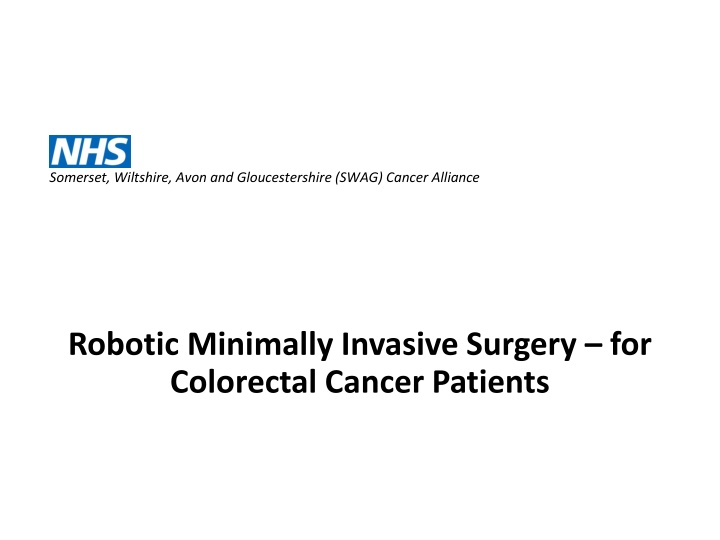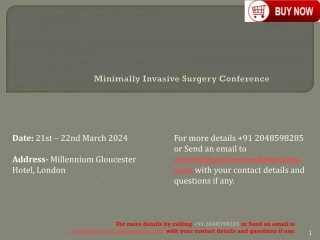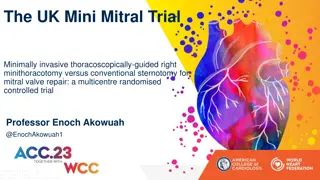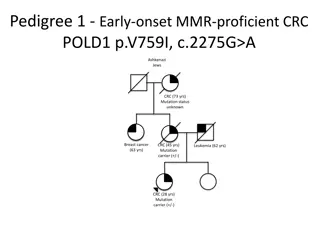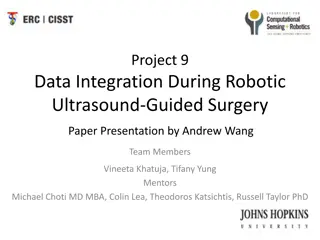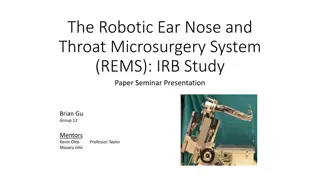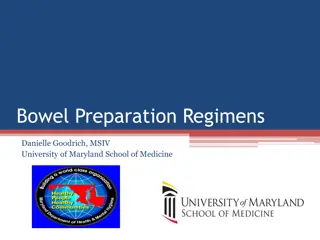Robotic Minimally Invasive Surgery-for Colorectal Cancer Patients
The shift from open surgery to minimally invasive Robotic Assisted Surgery (RAS) is revolutionizing the surgical model of care worldwide. RAS addresses limitations of traditional laparoscopic surgery, enabling complex procedures with significant benefits. Reports predict a major expansion in RAS within the NHS, emphasizing the impact of digital advancements. Advancing minimally invasive surgery, particularly for colorectal cancer patients, is key in the post-COVID world. SWAG Cancer Alliance is at the forefront of adopting robotic techniques to enhance patient outcomes and tackle challenging surgical cases.
Download Presentation

Please find below an Image/Link to download the presentation.
The content on the website is provided AS IS for your information and personal use only. It may not be sold, licensed, or shared on other websites without obtaining consent from the author.If you encounter any issues during the download, it is possible that the publisher has removed the file from their server.
You are allowed to download the files provided on this website for personal or commercial use, subject to the condition that they are used lawfully. All files are the property of their respective owners.
The content on the website is provided AS IS for your information and personal use only. It may not be sold, licensed, or shared on other websites without obtaining consent from the author.
E N D
Presentation Transcript
Somerset, Wiltshire, Avon and Gloucestershire (SWAG) Cancer Alliance Robotic Minimally Invasive Surgery for Colorectal Cancer Patients
The case for change The surgical model of care worldwide has transitioned the shift from open surgery to less invasive laparoscopic (keyhole) surgery has occurred and is now transitioning to minimally invasive Robotic Assisted Surgery (RAS) being the norm and with this, bringing significant and wide-ranging benefits. RAS addressed many of the inherent limitations of the laparoscopic approach thus making it possible to perform complex surgical procedures that traditionally can only be attempted by specific highly trained and skilled operators. The 2019 Royal College of Surgeons (RCS) England Future of Surgery 1 report outlined how surgery is likely to change in the NHS over the next decade with major predicted expansion in the provision of RAS. The Topol Review exploring the impact of a digital future on the NHS came to similar conclusions.
Advancing minimally invasive surgery for our Colorectal Cancer patients Peer-Reviewed MIS Robotic Platform Colorectal Surgery Publications
Next Steps Worldwide and UK trend in the uptake of robotic surgery in various surgical specialities. demonstrating increasing trend in implementation of robotics In post COVID world - complex rectal cancer surgery especially in obesity disease patients, male patients with a deep narrow pelvis and low-lying tumours are particularly challenging via the laparoscopic approach.
SWAG Next Steps This trend reflects the ability to adopt the robotic approach to safely and effectively replace laparoscopic techniques as well as the use of the robotic approach to perform open procedures that are not suitable for laparoscopic approach given their complexity.
